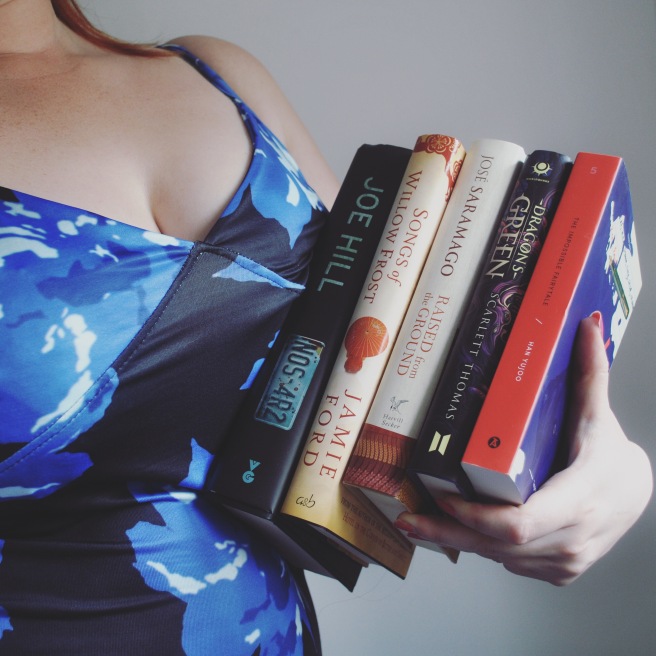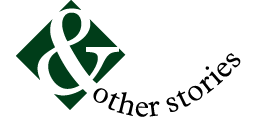 CW: sexual assault.
CW: sexual assault.
This is a very different flavour to what I usually write and it includes a personal story that I don’t want to discuss, with anyone, no exceptions. But recent conversations around the ways many male writers describe women has had me thinking.
When I was a teenager I was assaulted and stalked by a 46 year old man. He was my boss, he had all the power, he was relentless and dangerously delusional. He rationalised his obsession by telling me the ways in which I made him unable to control himself; my big eyes, the way I didn’t make eye contact, the fact I laughed nervously at his jokes, the fact I listened to people’s problems. In context, all signs that I was a young girl terrified of losing her job who didn’t know how to get out of a scary situation. In his mind? Fear was romanticised, a look of fear morphed in to wide-eyed adoration for this middle aged alcoholic. I try not to acknowledge it anymore, and it took me a long time to accept that nothing about my physical appearance, my desire to be nice to people and do my job well, meant that I was asking to become the obsession of a man older than my mum. Some of what I’ve written above I’ve never said aloud.
How does this relate to the topic of men writing women?
There’s been a viral tweet going round asking women to describe themselves as a male writer would. It doesn’t need a #notallmen disclaimer, it’s a fun take on a trend of men failing to write well rounded female characters without focussing on how fuckable they are. I opened a reply to make my own take, then realised I couldn’t. Because in my head the only way a man would describe me is still the ways in which I’ve been described by men who haven’t seen me as a person.
And for me that’s where the root of the problem lies. In all the excerpts I’ve seen of poorly written women by male writers have been the undercurrents of not seeing us as fully rounded people. We’re breasts, big lips, sashaying hips; or fat, unfuckable, too skinny to be real women, or butch. Even in a first person introduction, I read a narrator talk more about how her jeans were so tight men could read her credit card number through her pocket. Show me a woman whose internal monologue works that way?
This may seem like a petty point to some. But the dehumanisation of women in fiction by ‘classic’ or ‘literary’ writers (the treatment and classification of women, non binary writers and writers of colour by the publishing industry is a whole other kettle of fish) has a social effect. If our media feeds the idea that the male view of women is accurate, by heralding these superficial descriptions and framing women as things to lust over, then how can we begin to undo those dangerous perceptions in real life. In a world where James Bond’s suave misogyny is the pinnacle of manliness, and women are merely moving, suggestible art draped over his arm, then how can our real life abusers possibly be wrong in the way they perceive us? When men write us that way, they tell the portion of men in the real world that want the excuse to see us as things purely for their pleasure that they’re exactly right.
I am not overreacting. I am not making false equivalencies. We need to demand better representation for ourselves, for women who look like us and those who don’t. Male writers have a duty to examine the ways they present their female characters. Do they read like something you want to fuck? Something you want your reader to want to fuck? Is her anger sexy to you? Her fear? Is she there because you need your male characters to angst over? Then you need to rethink your ability as a writer. Women belong in fiction like they belong in the real world; with their own rounded narrative, not for the development of a man but because we exist as complex individuals and we deserve to be portrayed that way in fiction.
I wanted to include some positive examples of male writers writing women and I originally skimmed through some books on my shelf looking for a paragraph that would say to me yes, this guy knows how to describe women. I soon gave up. Not because it’s impossible for men to write women well, but because the ones that do focus so much on making them rounded characters it leaves little room for whole paragraphs where their internal monologue waxes philosophical about their looks. Men don’t get written that way, well written women shouldn’t either.
Take the man who is, in my eyes, the god of good characterisation, Terry Pratchett. In his books about The Witches a picture of their looks builds up gradually, but well before that you’ve got an idea that Nanny Ogg is a genial menace with the double entendres.
In Paul Trembley’s Head Full of Ghosts Merry, the narrator, immediately describes another female character, ‘best-selling author Rachel Neville’, as wearing ‘a perfect fall ensemble: dark blue hat to match her sensible knee length skirt’. It does two things; shows Merry as a narrator who observes in the way women do in real life, without thinking constantly about their own looks, and introduces a second female character by her achievements over her fuckability.
We need more of this. A lot of the books I read nowadays aren’t written by the ‘literary’ stereotype of the allo cishet white man, and in my experience writers approaching their characterisation from an intersectional perspective tend to be better at writing characters in general. But that doesn’t mean that we can’t hold the established darlings of literary fiction to the same high standards.



























